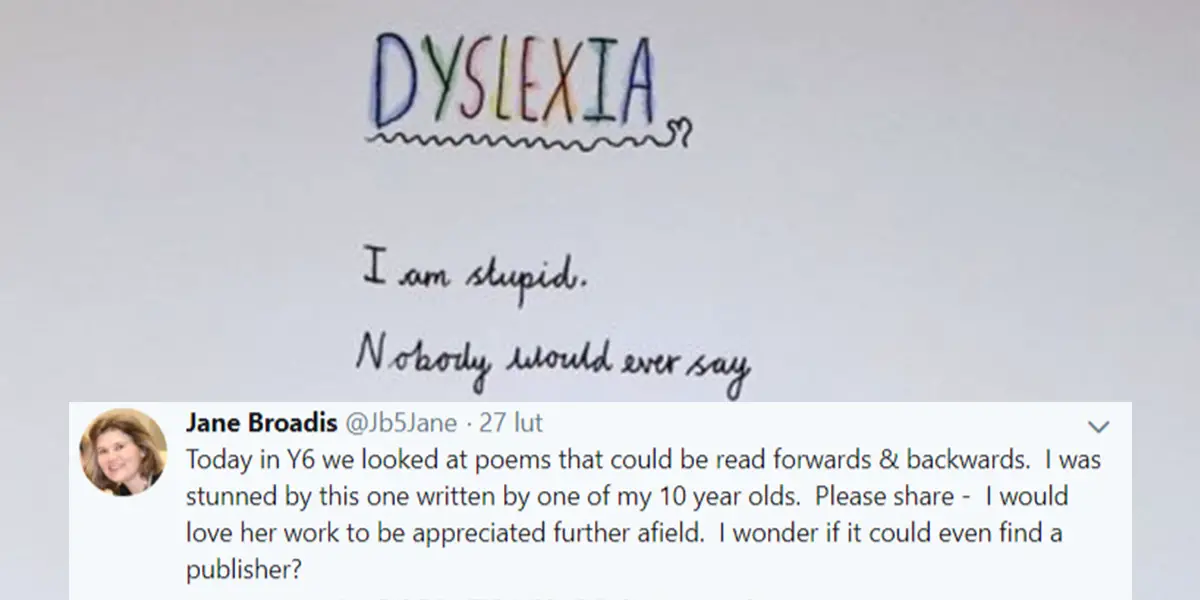10-Year-Old Writes A Poem About Dyslexia That Can Be Read Backwards
Tags: opinion

Last month, Jane Broadis, an English teacher from South West London, posted a wonderful poem to Twitter that was written by one of her students. The teacher gave an assignment to her students to write poems that could be read forwards and backward.

The poem that she posted online was about dyslexia, which is the most common learning disability and occurs in all areas of the world. It affects 3–7% of the population, but up to 20% may have some of the symptoms. The most common symptom of this condition is that it becomes very difficult for people to read and interpret the written word.
“Today in Y6 we looked at poems that could be read forwards & backward. I was stunned by this one written by one of my 10-year-olds. Please share – I would love her work to be appreciated further afield. I wonder if it could even find a publisher?” Broadis Tweeted.
The post was met with overwhelming praise, especially from people who suffer from dyslexia. Many people with the condition have a difficult time in school, and they are often misunderstood and mistreated by their teachers. A few people with dyslexia responded to the threat with stories of how their teachers called them stupid or lazy. Many of them thanked the teacher for being so understanding and encouraging.
A publisher even replied to the teachers request to place the poem in a book that is specifically made for dyslexic children.
Jane, I am in the process of writing a book about dyslexic children and their families! I would love to include this poem in the book!
— Peggy Webb Hendrix (@PWebbHendrix) February 27, 2019
She was also contacted by The Oprah Magazine about the poem.
@Jb5Jane Hi! We would love to chat with you about the 10-year-old's poem you posted that's going viral. Please email me at: celia.fernandez@hearst.com, if you're interested :).
— Oprah Daily (@OprahDaily) March 1, 2019
Learning disabilities are extremely common and unfortunately in the past parents and teachers had a very cold or dismissive attitude towards children who had a more difficult time with reading, math, or even social activists. Luckily, as the years go on, the shame and stigma around these conditions are fading away, which is creating a better atmosphere for those of us who might require a bit more help and patience from our neighbors and peers. It is easy to see how a child with dyslexia could be encouraged by a project like this one, and at the very same time, it is just as easy to see how that same child could be damaged and discouraged by a teacher calling them names or not having the patience to deal with them.
IMAGE CREDIT: Pixabay
Leave Comment: